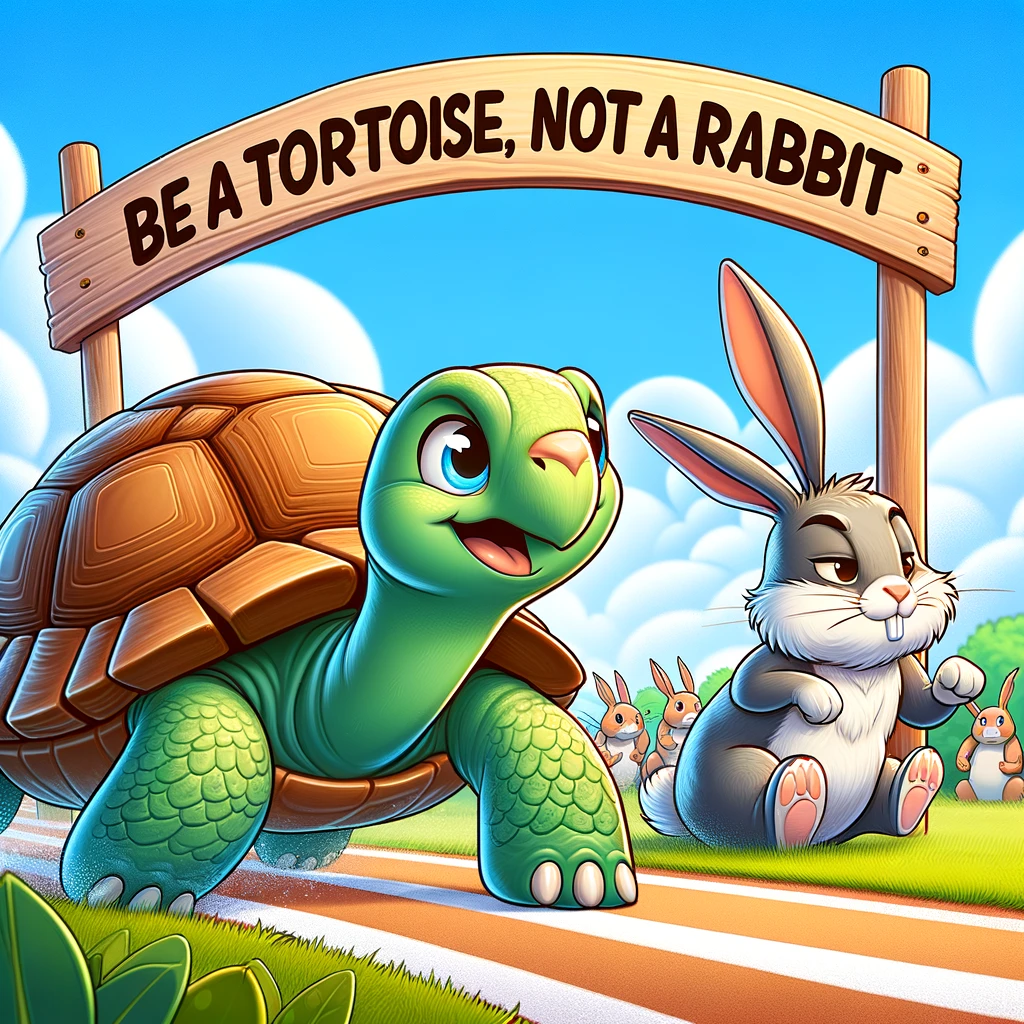My Tryst with Productivity, Habit building and Happiness
What productivity means to me and why I decided to build an app for myself to be happily productive
Published: May 1, 2024
Reading time: 14m
Heads up! This article will be relatable for those who obsess about planning their daily activities and/or have tried some kind of habit tracking / building and constantly think (or worry) about being their most productive self. Others might not be able to relate much, but feel free to give it a read to understand the other side :)
Background
I’ve always been obsessed about planning. Be it planning for a vacation or splitting study holidays in college to decide how to prepare for various subjects or planning what I do on a typical work day, I like to make a list of all the things I have to do, when to do, in what order to do, you get the gist. This article talks about the challenges I faced with this approach once I began my software engineering career, my learnings over the past 8 years and the approach I follow today to keep me happy and productive in that order.
My very first productivity metric during my exam preparation days was number of chapters per book per day. Fast-forward from there, since I started working as a software engineer, my metric became number of books I read per week. Obviously I over-committed and it became number of books per month. As I advanced through my career & life, the number of things I wanted to do exploded. Just to show a glimpse, here is my current list:
- Career - Read email newsletters and all the RSS feeds I’ve subscribed to, to be up-to-date with the latest tech in this rapidly changing environment, dive deeper on tech I use at work to make sure I use best practices, pursue one new book / course / YT playlist on things I want to learn that is different from what I do on a daily basis.
- Fitness - 4 times/week resistance training, 3 times/week cardio (for my heart health), 3 times/week physiotherapy for back and legs (because of my past injuries)
- Personal interests - Blogging, working on my apps, my non-technical reading list which always keeps growing
Above list doesn’t include other aspects in life that takes effort, like planning and cooking meals at home, maintaining social relationships, etc.
I’ve been trying to figure out what works best for me while aiming to do all the above-mentioned things in a balanced manner. I’ve had my ups and downs, loops of over-committing followed by feeling burdened followed by doing nothing followed by restarting the same loop. There have been weeks when I’ve done it all and there have been weeks when I’ve spent time only on work, and I’ve been extremely happy about it too as I enjoy building software. Some weeks I’ve beat up myself because I didn’t spend enough time for myself even though I actually didn’t have the time for it, while some weeks I’ve just been down because the previous week didn’t go great. You can imagine.
While I have read books like “The Power of Habit”, “Atomic habits”, “5 AM club” to understand and inculcate the methods discussed, this article sums up the learnings from my practical experience and what methods I think can help with that and how I intend to app’ify those methods.
Realizations from my personal experience
While below might seem clichéd, I would still like to re-emphasize them:
Be a tortoise, not a rabbit

Goals take time to achieve. While our enthusiasm suddenly peaks, and we come up with grand plans, we tend to get demotivated if we don’t get immediate results. We need to embrace the fact that reaching our goals can take months/years and instead derive happiness from each and every step that we take towards our goal. Once we get addicted to deriving that happiness from that every day step, there is no stopping us.
For example, if you want to start a reading habit as a new year resolution, do not immediately list down 50 books and tell yourself that next year you’re going to read 50 books. Instead, tell yourself that this is a new habit, and you’ll start with 12 books next year.
Trust the process

Being a tortoise requires patience and trust in the process. As long as you’re taking one step every day in the right direction, you’ll be fine. While after coming up with the plan, you might be extremely enthusiastic and do what you planned, the subsequent days will be the challenging ones where you might feel like whatever you do might not be sufficient as you have a mountain to move. That is the moment you have to tell yourself what MSD has been telling us all these years - “Focus on the process” and take that one step every day.
Continuing the same example, say first 3 days you read one hour daily, and you realize you didn’t cover a lot of pages, that’s okay. Trust the process, spend at least 15 minutes on the 4th day and keep it going.
Don’t micromanage time, let your passion take over

Micromanaging time is one of the biggest mistakes I think I’ve done. I’ve often found that it puts too much pressure on me the moment I start lagging behind and that has a snowball effect on rest of the day. Although I haven’t stopped planning my day, I have now started giving much bigger cushions for everything. I try to trick my ego, telling, if I like something, I will naturally spend more time on it. I rely on my planning for me to initiate an activity, but after that, I try to give it as much as time as I feel like on a particular day. That freedom has taken away a lot of pressure that I used to put on myself.
For example, my reading goal is to read for about 30 minutes 5 times a week. To do this, I’ve dedicated an hour daily between 2100 and 2200 instead of exactly 30 minutes between 2130 and 2200. On some days, I might just use 15 minutes of that hour to read and on other days, I might use all of 60 minutes. This gives me flexibility and helps me get at least that 15 minutes every day and get a win instead of trying to read exactly for 30 minutes between 2130 and 2200 where even a minute’s delay can put you off.
While I follow the above slotting method on weekdays, I try to avoid timetables on weekends. I have a list of things that I like to do over weekends, but I don’t want to limit or plan how much time I spend on them when I’m at my creative best over the weekend. Instead, I like my passion to take over. Sometimes I spend all my weekend on just my blog for my creative win, or sometimes it’s a book, instead of trying to spend exactly n amount of hours on each thing.
You don’t have to wake up early to be productive!
After reading Robin Sharma’s “5 AM club”, I did wake up at 5 AM for about 2 weeks. And then I had to travel, and the streak broke, and I couldn’t resume it. And like all streaks, breaking that made me sad for a few days before I could pick myself up. Instead, this is what I suggest - start with small changes around your typical schedule, dedicate say 20 minutes after lunch to do something you want to, whether you’re at office or working from home, make slight extensions instead of doing anything drastic. Because waking up early is a drastic decision if in case you’re not used to it.
For example, I work from home most of the days and I try to get an hour for myself before I start work, 30-60 minutes during my work hours when I read tech related things and a couple of hours post work. This works well for me instead of trying to wake up at 5 AM and trying to do everything I want before I start work as I realized I constantly failed to wake up early and that started having a negative impact on me. Also, some days, I am just at an awesome flow late at night and I don’t want to break it just to wake up early. Instead, I try to cap my sleeping hours at 5 REM cycles (~7.5 hours). When I get that 7.5 hours of sleep and get up, I wake up a winner in my eyes instead of being sad and angry about over sleeping again, and that happiness lingers to rest of the day.
Seek happiness to improve productivity

While trying to be your best productive self, it is very, very important to be happy first. It is a vicious loop. While failing to do what you plan can make you unhappy, you might wonder how can you be happy first before being the productive self you want to be. Here is where, taking stock of your current situation and a bit of gratitude journaling can help. I’m sure your efforts in the past would have led to you being where you are today, just that you always think you can do better. The fact that you want to do something means you’ve already taken the first step. Acknowledge that, give yourself a pat on your back, be happy that you’re going to embark on something new and take it from there on a positive note.
Distilling above gyaan into an app
That is a lot of realizations 😅. The Engineer in me wanted an app of some kind to be able to use above in my daily life. I have tried using apps like Productiv, Fabulous, etc. While they do help you with habit building, I don’t think they emphasize the human aspects enough. And they’re pretty expensive too and even WRT habit building, I feel quite a few things are missing. Plus it is a lot of fun building something like this for myself and hope it’ll be useful for a few others too.
These are the concepts I’m planning to base my app on, which are different from existing apps. I will publish a later article explaining all the concepts of the app in detail. I aim to release this application by end of 2024.
Wins
The main concept that I’m planning to center my application around is the concept of “wins”. Getting a win makes you happy and crave for the next one, be it the smallest of ones. Like activity rings on your Apple Watch, I’ve come up with some types of wins that I would like to get daily to live a happy holistic life:
- Learning win - Something new that you learned today, be it related to work or anything that you found useful for you
- Creative win - Your contribution to the world, something new, some problem you solved, some piece of code you wrote, some new music you created, etc.
- Physical health win - This has two aspects - food and working out. Working out typically reduces cravings and nudges you to eat in a controlled manner. Even if you aren’t able to work out, eating in a balanced manner is a great way for you take care of your body (I call this - “Eat 80% habit” taking inspiration from Ikigai)
- Emotional wellness / Relaxation win - This includes sleeping well, meditation / gratitude journaling if you like doing them, happiness journaling which is just noting down what made you smile / happy today, or just journaling where you pour down your thoughts, anything to make sure you’re at peace with yourself and go about your daily life with a happy positive mindset.
- Social win - Spending time with loved ones, be it your friends, your partner, your pet, etc.
- Relaxation win - While this slightly overlaps with emotional wellness win, what is different is, this includes explicitly taking time to unwind and recharge. This can be that walk you like, sitting on a swing in a nearby park, even sitting idle with just your thoughts for some time, or even enjoying a 2-hour-long nap when you feel like it, or taking entire day(s) off doing nothing, anything that gives you that feeling of being relaxed. You shouldn’t feel an iota of guilt while doing this and instead, enjoy the act of doing this. You need this.
Every habit you create in the app will tie to one of the above wins and completing any habit on a particular day related to a particular win will give you that win. That aside, every habit category will have scores that depend on how you’re doing in all the habits under that category. Those are still details and the primary focus should be about getting those top level wins daily. Once you see yourself successful in doing that, you can start concentrating on the individual habit/category metrics.
More user-friendly approach to progressive habit building
There will be a clear progression for every habit where if you’re beginning to pursue a new habit, you have to set an initial goal and a future goal to pursue once the initial goal is met consistently. This helps prevent over-committing and take the tortoise’s approach. Once you’re regular, you will be nudged to pursue the next level if you want to.
Showing up is the most important thing
For example, if you want to pursue a new habit of reading a book, showing up for about 15 minutes every day is what matters. The app will nudge you to create a habit that says “Read a book at least for 20 minutes 5 times a week” as opposed you setting a daily target of 30 minutes and tracking your time every day. Instead of your habit being “Read for 30 minutes between 2130 and 2200 daily” and you having to track time within the app whether you read a book for 28 minutes or 29 minutes, you show up and get your win! The minutes don’t matter! (IMHO) You show up regularly and will see the time spent increase automatically.
Relaxed streaks
I’m trying to figure out much relaxed consistency metrics as opposed to strict streaks where one bad day could cause you to lose a streak. If you’ve set out to workout 4 times a week, and you worked out 11 times in the first 20 days and miss out on the 21st day, it is okay! Missing on the 21st day shouldn’t demotivate you from continuing that habit. This is also tied to progression within a habit. If you’re in the beginning phase of a new habit, streak rules are going to be relaxed compulsorily. They will become stricter as you progress through the habit.
Other concepts
I’m planning to theme this application like a yearbook planner. You first start with yearly resolutions, have goals every month, and create habits to help you reach those goals. Every habit has a category and is related to a win. There will be win level metrics, category level metrics and habit level metrics with a conscious push towards starting it slow, pursuing overall wins before diving into details and rest of the realizations I have discussed previously.
Conclusion
The change in mindset towards adopting a slow and steady approach, setting realistic goals and expectations, with a focus on being happy about what I’m doing on a daily basis has helped me a lot to be happy, stay motivated and be productive. Hope my realizations and methods helps you in some way if you’ve read this far. All the best!
